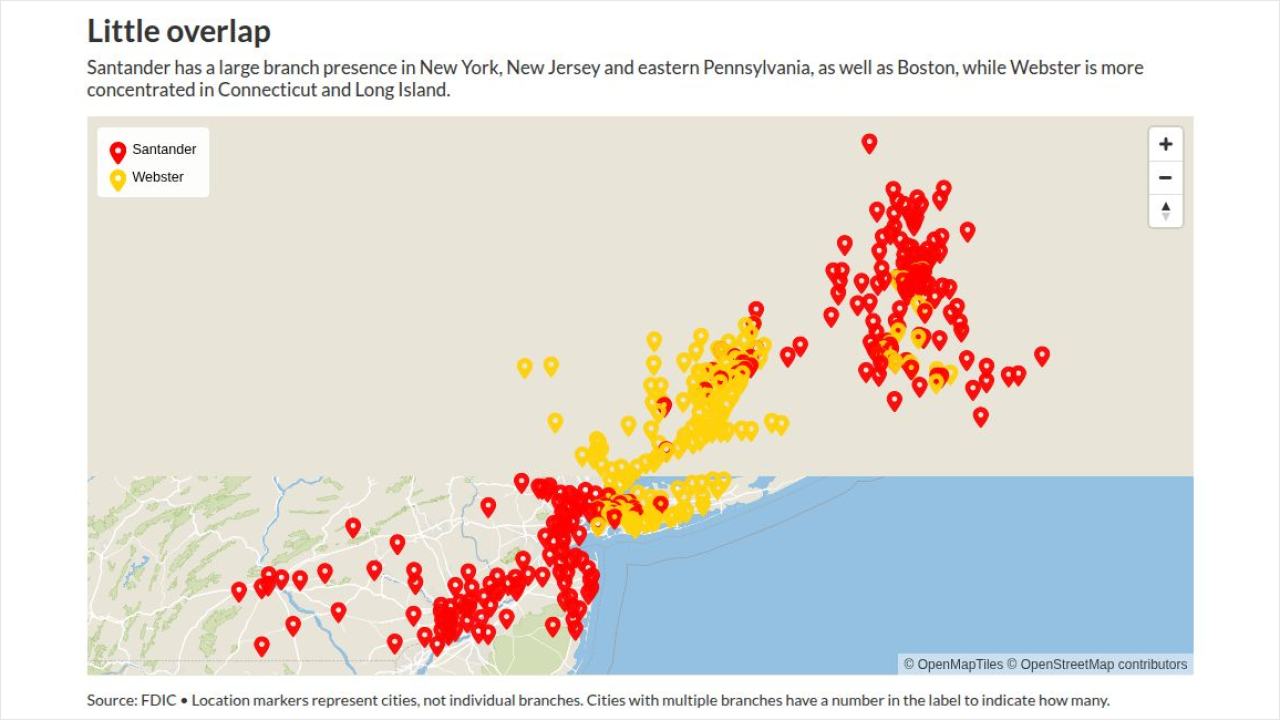- Key insight: Comptroller of the Currency Jonathan Gould said Thursday that regulators want to "refocus" bank supervisors on material risks rather than engaging in "check-the-box" exercises that take attention away from bigger financial risks.
- Expert quote: "From my perspective, we need to make sure that we are focusing [banks] on the things that matter most, which I would broadly define as the material financial risk to them. That is the area that we can absolutely not fail to see and defend against." — Comptroller of the Currency Jonathan Gould
- What's at stake: The Federal Deposit Insurance Corp and Office of the Comptroller of the Currency issued an advance notice of proposed rulemaking earlier this month seeking comment on ways to make bank supervision more effective and legally sound.
WASHINGTON — Comptroller of the Currency Jonathan Gould says an interagency effort to rethink bank supervision is aimed at empowering bank examiners by reducing their responsibilities to only the most critical aspects of a bank's operations and basing their actions on firm legal footing.
Speaking at a luncheon sponsored by Women in Housing & Finance Thursday afternoon, Gould said supervisory practices since 2008 have evolved over time to gradually expand supervisors' remit to the point where they cannot effectively monitor and assess the severity of such a wide array of risks. The result, Gould said, is examiners err on the side of citing every risk they find, leading to a surplus of supervisory notes that in turn confounds bank management. By limiting their scope in regulation, he said, the agency will make them more effective at monitoring the most important risks.
"[Examiners] always want to cite every possible thing on the planet, including the kitchen sink, because they are concerned that they will be criticised after the fact for failing to note something," Gould said. "So by having a regulation, I relieve them of that obligation. There's literally a rule, if it's finalized, that says, 'You can't cite for these things.'"
Gould said another reason to revisit bank supervision is because agencies are
"I think supervision needs to be put on a firmer legal foundation," Gould said. "Defining key terms in a regulation, I think, has value."
Gould said the
"You really can't be all things to all people. Not only does the OCC have finite resources, but the banks themselves have finite resources … and those resources are constrained by board attention, senior management attention," Gould said. "So from my perspective, we need to make sure that we are focusing those people on the things that matter most, which I would broadly define as the material financial risk to them. That is the area that we can absolutely not fail to see and defend against, and I think that did not happen at Silicon Valley Bank."
But rather than substituting examiner judgement with firm regulations, Gould said, the purpose of these revisions would be to make the subjective judgements of individual bank examiners hold more weight by being more focused and supported by regulation.
"There's no substitute for examiner judgement," Gould said. "We still need examiners to exercise their judgement. That is what supervision is — you take a generally applicable regulatory principle and you apply it to an individual bank through an exercise in examiner judgement. What I'm attempting to do is to constrain the parameters of how they exercise that judgement in the scope of the examination itself."
In response to a question about managing third-party risks, Gould said that the agency can and will offer banks more helpful guidance, particularly by differentiating between third-party relationships that impact a bank's bottom line and relationships that are more peripheral to safety and soundness. But he added that the agency will have "more to say" about core service providers "in the near term," suggesting some forthcoming agency action or guidance concerning the largest core providers. An OCC spokesperson declined to offer additional details.
"There are more material issues around relationships with core providers, so we'll probably have more to say about that in the near term, around relationships between banks and particularly very large, oligopolistic core providers," Gould said. "I have concerns about the dynamics of those relationships, so we'll be coming out [with something] before too long."







